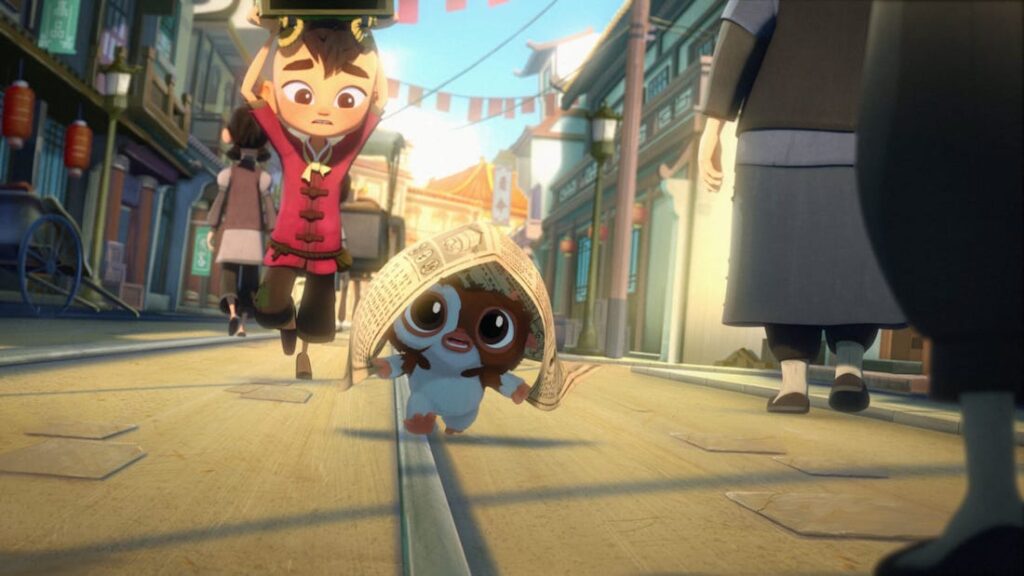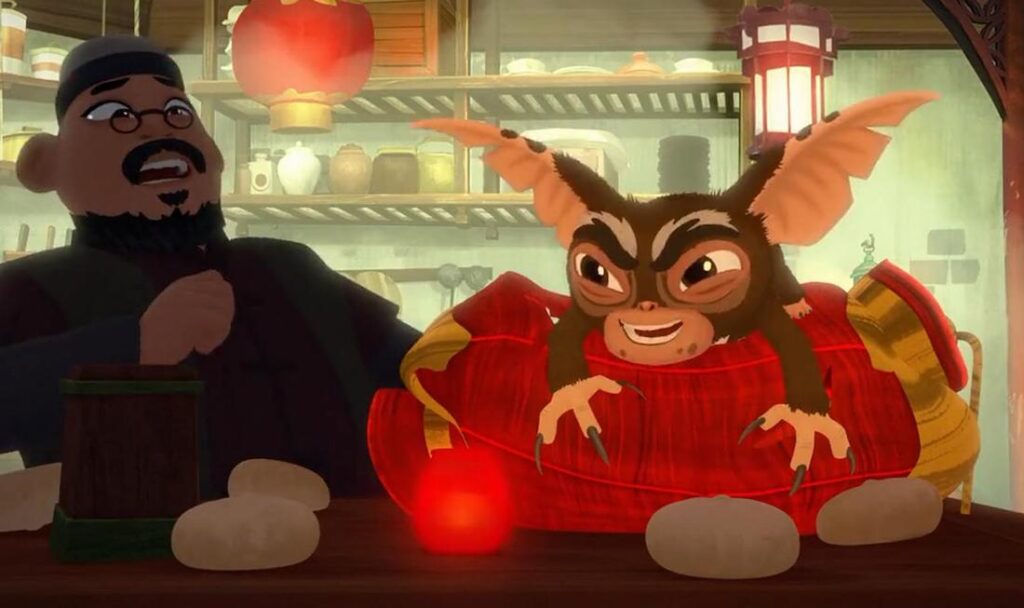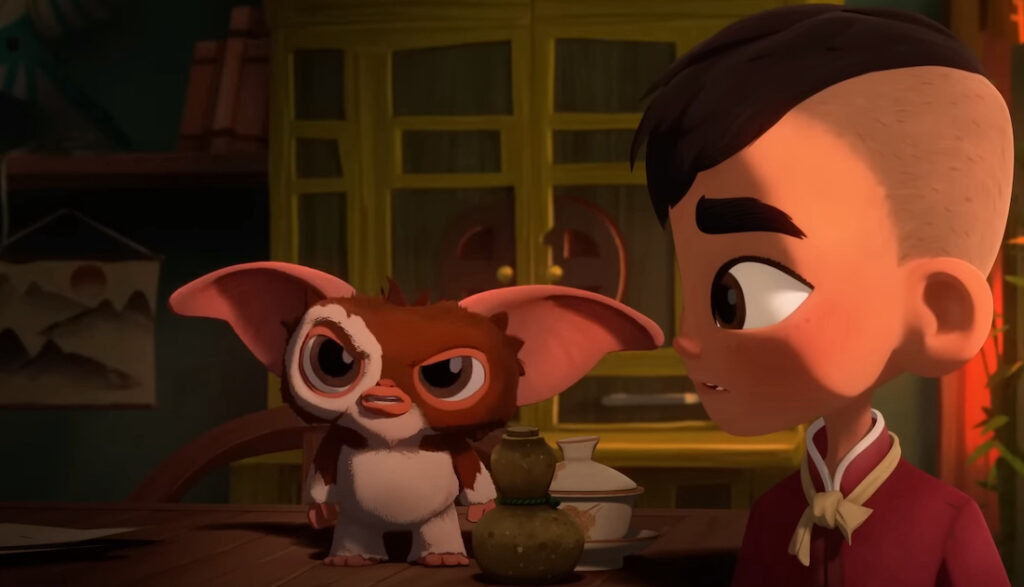Grounded, self-reflective with the ability to be hard on himself and still push through, Tze Chun is a filmmaker who’s willing to fail. But after that failure, he also has the strength to pick himself up and try again. Ultimately, he believes in his vision for a story and keeps fighting for it until he reaches his goal.
Tze Chun’s been the showrunner for the recent MAX animated series Gremlins: Secrets of the Mogwai. He’s also written for such shows as Prime’s I’m a Virgo, Apple TV+’s Little America, Fox’s Gotham and ABC’s Once Upon a Time. He spoke with ScreenCraft about his creative process, setting realistic expectations, and developing an awareness about oneself as a writer.
Got a great TV pilot? Enter it into the TV Pilot Screenplay Competition!
Passion – Combined with Persistence – Pays Off
As a teen, Chun’s first love was comic books. After attempting to tell stories on the flat page, he says he was able to borrow a video camera from the AV department at his high school and borrow their editing deck. He transferred his love of drawing images to filming them, making a series of low-budget short films. When his short Windowbreaker got into Sundance in 2007, his career was off and running.
Read More: 10 Elements of a Great Family TV Series
Knowing When an Idea Has Legs
We’ve all had that genius, creative spark of an idea only to sit down, begin writing and realize, maybe this isn’t a movie after all. Sometimes we may not have any ideas at all and feel like we’ll never have a great idea again – that’s when panic can set in. Chun knows both feelings all too well, but he has a solution.
“What I do when that happens,” says Chun, “is I give myself permission to come up with bad ideas. I will sit down for a week, maybe two weeks and write out 10 ideas a day. It doesn’t matter if I get good or bad ideas and sometimes, I’ll only get 5.”

‘Gremlins: Secrets of the Mogwai’
He says the process of letting yourself come up with bad ideas can actually be fun and inform other good ideas by getting the bad ones out of your system. He keeps all his ideas – good and bad – in a Google doc that he can revisit and reassess at a later date. “It sounds clinical. But it’s better than sitting around not knowing what I’m going to write,” says Chun.
Read More: 5 Pieces of TV Writing Advice to Live By
Dealing With Procrastination
We’ve all been there. We finally have an idea we love but somehow, it’s easier to let it live in our head than on the page. This is when our apartment or closet gets super clean and organized because anything seems better than actually writing. But Chun has a method of dealing with the self-imposed delay.
“When I started writing,” says Chun, “there was a procrastination element. But I knew I wanted to finish these projects. What I told myself was: of all the things that can happen today, the only way a script is not going to get done is if I don’t jump into it. Anything I do with the computer open is going to be moving me towards that goal.”

‘Gremlins: Secrets of the Mogwai’
So just typing in a doc, brainstorming, coming up with character names – these are all ways to focus your mind on your story.
Read More: How to Find Discipline, Beat Procrastination and Take Hold of Your Writing Career
Break Large Tasks Down Into Small Tasks
Chun says sometimes you just have to take baby steps because writing an entire script can be really daunting. His advice is to break it into small tasks.
“When I come up with a movie idea or even a TV idea, I give myself permission to write 3 pages of just nonsense. Nothing that has to end up in the script – thoughts about character, theme, why am I interested in this story. What are some cool things you haven’t seen before that maybe could go into the script? I allow myself to just write a huge amount. I’m not going to write 120 pages, I’m going to write one page that tells the story – very generally. Then I’ll break that into a four-pager. If it’s a movie, every page is Act I, Act II a, Act II b and Act III. If it’s a TV show, then maybe I’ll split it up so that every ¾ of a page is an act. At that point it’s less daunting already.”
Long Outlines Pay Off
Most writers hate outlining but it’s a necessary evil if you don’t want to get lost in your second act – or anywhere else! Chun thinks spending time on a lengthy outline will help writers in the long run.

‘Gremlins: Secrets of the Mogwai’
“If it’s a movie, maybe I’ll write a 40-page outline. I know that’s overkill, but at the same time, I know that when I jump into writing the script – turning a 40-page outline into a script [will take] a week. But it might take 2 or 3 weeks to do a 40-page outline. TV is the same. I’ll probably do a 19-page outline for a 60-page script or a 10-page outline for a 30-page script,” Chun says.
Putting everything into an outline will help structure the story and allow the writer to see the repercussions of each action more clearly. Story can be like Newton’s Laws of Motion – for every action there is an equal and opposite reaction, so putting each action and reaction into the outline can be really helpful.
Read More: To Outline, Or Not – That is the Screenwriting Question
Develop Your Own Writing Process
By now, says Chun, he’s very aware of the ups and downs of his own writing process. He’s developed a self-awareness around it so that he can trust it will lead to something great – even when it seems like nothing productive is happening. He explains:
“Sometimes I have intense anxiety about whether I’m on the right track, but at the end of that anxiety, I have a good idea. So now I know that when I’m going through a really tough time, I know there’s something that’s going to happen. I have to allow that to happen, to feel all that anxiety and at the end of it, I’ll just be walking around and think, ‘Oh, that’s something I want to write.’ That was a hard lesson, because you’re in [the middle of] it,” he says.

‘Gremlins: Secrets of the Mogwai’
Develop Self-Reliance
So much of the film and TV industry is out of the writer’s control. The WGA strike is a good example. So, the more a writer can rely on themselves, the better off they will be.
“Projects are short-term,” says Chun, “but you as a writer are a long-term project. You are somebody who is going to have to know themselves in a certain way because there’s a lot of stuff you can’t necessarily control about this industry. But if you can control an understanding of who you are and what you need in order to be productive, that’s a really important goal to set for yourself. It’s also just taking care of yourself because there’s a lot of stuff that can happen in the industry that can be really hard. You have to know yourself and the way that you deal with it so you can be healthy and productive.”
Read More: 6 Reasons Screenwriters Should Consider Writing for Animation
CHECK OUT OUR PREPARATION NOTES SO YOU START YOUR STORY OFF ON THE RIGHT TRACK!
The post Showrunner Tze Chun on the Benefits of Bad Ideas and Nonsense appeared first on ScreenCraft.
Go to Source
Author: Shanee Edwards


